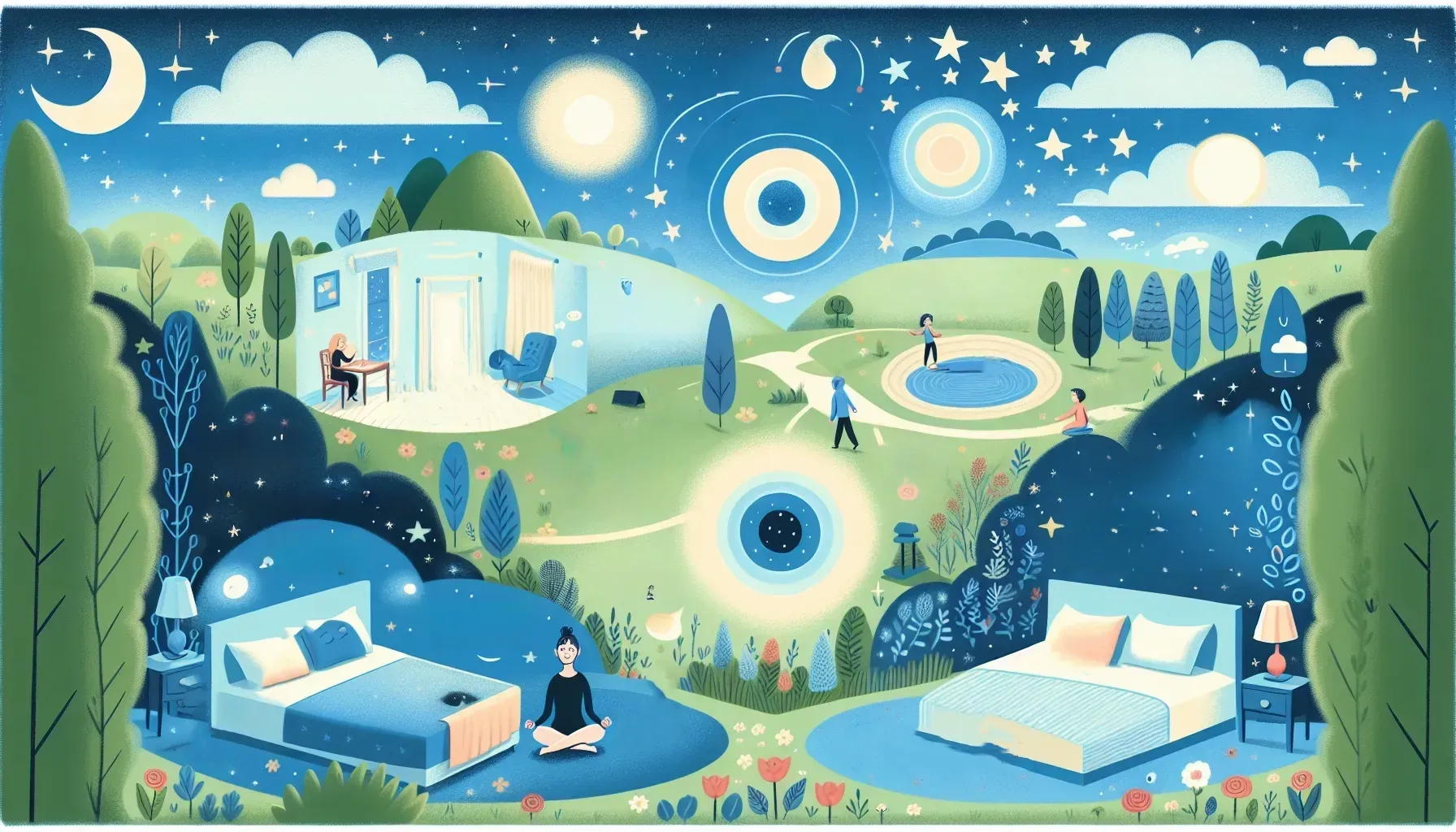The Power of Sleep: Unlocking Optimal Health Through Rest

In the hustle and bustle of modern life, sleep often takes a backseat, yet its impact on overall health and wellness cannot be overstated. As we understand the vital role that sleep plays in achieving holistic well-being. This comprehensive guide delves into the various facets of sleep, addressing common challenges and offering actionable solutions for our readers.
Sleep is not a uniform state; instead, it consists of distinct stages, each crucial for different bodily functions. The two main categories are rapid eye movement (REM) and non-rapid eye movement (NREM) sleep. During NREM, the body repairs and regenerates tissues, builds bone and muscle, and strengthens the immune system. REM sleep, on the other hand, is essential for emotional regulation and memory consolidation. Understanding these stages allows us to appreciate the diverse health implications associated with quality sleep.
Understanding Sleep Stages and Their Health Implications
As we delve deeper into the significance of REM sleep, its critical role in emotional regulation and memory becomes apparent. During this stage, the brain processes and stores information from the day, contributing to learning and long-term memory retention. Additionally, REM sleep is pivotal for emotional regulation and mental well-being. Disruptions in this stage can lead to mood disturbances, cognitive impairment, and reduced stress resilience.
What are the stages of sleep?
Myth: Adults need less sleep as they age. Reality: While individual sleep needs may vary, the general consensus among experts is that adults still require 7-9 hours of quality sleep per night. Separating fact from fiction is crucial in dispelling common myths about sleep requirements. By acknowledging the need for sufficient rest across all age groups, we prioritize our health and pave the way for enhanced productivity and cognitive function.
In today's digital age, exposure to blue light from screens can disrupt the body's natural circadian rhythm, leading to difficulties in falling asleep and reduced sleep quality. To mitigate these effects, incorporating digital curfews before bedtime, using blue light filters on devices, or investing in blue light-blocking glasses can help align the body's internal clock with natural light-dark cycles, promoting better sleep patterns.
Related Article: Embracing the Mediterranean Lifestyle for Lasting Wellness
The Importance of REM Sleep for Emotional Regulation
Optimizing the sleeping environment is crucial for fostering restful nights. Simple adjustments such as keeping the bedroom cool, dark, and quiet, investing in a comfortable mattress and pillows that support spinal alignment, and maintaining a consistent bedtime routine can significantly improve sleep hygiene. At Peppino's Health Haven, we advocate for creating a tranquil sanctuary dedicated to rejuvenating the body and mind through healthy sleep habits.
Common Myths About Sleep Requirements Explained
Chronic sleep deprivation can have far-reaching consequences on overall health. Studies have linked insufficient sleep to an increased risk of chronic conditions such as heart disease, diabetes, obesity, and weakened immune function. By acknowledging this profound connection, individuals are empowered to prioritize adequate rest as a cornerstone of preventative healthcare.
The Effects of Blue Light on Sleep Quality
Insomnia affects millions worldwide, impacting daily functioning and overall quality of life. Implementing cognitive behavioral therapy for insomnia (CBT-I), practicing relaxation techniques like progressive muscle relaxation or deep breathing exercises, establishing a calming pre-sleep routine, and refraining from caffeine or stimulating activities close to bedtime are effective strategies for overcoming insomnia and promoting restorative sleep.
Cultivating mindfulness through practices such as meditation or yoga creates an optimal mental state conducive to relaxation and quality sleep. By integrating mindfulness into daily routines and adopting relaxation techniques tailored to individual preferences, individuals can effectively manage stressors that inhibit restful sleep.
The Connection Between Sleep Deprivation and Chronic Diseases
Napping is a double-edged sword it can either invigorate or disrupt nighttime sleep if not approached mindfully. Short naps lasting 10 to 30 minutes can enhance alertness without interfering with nighttime rest. However, prolonged or late-afternoon naps should be avoided to prevent disturbances in circadian rhythms. Appropriately timed naps can provide a revitalizing boost while maintaining overall sleep quality.
Strategies for Overcoming Insomnia and Improving Sleep Quality
At Peppino's Health Haven, we recognize that prioritizing quality sleep is fundamental to achieving optimal health and wellness. By understanding the nuances of sleep stages, debunking myths surrounding rest requirements, implementing effective strategies for improved sleep hygiene and combating external disruptions such as blue light exposure, individuals embark on a transformative journey towards better health through a well-rested body and mind.
Frequently Asked Questions
Sleep consists of two main categories: rapid eye movement (REM) and non-rapid eye movement (NREM) sleep. NREM is vital for bodily repair and immune function, while REM supports emotional regulation and memory consolidation. Understanding these stages highlights their importance for overall health and well-being.
Exposure to blue light from screens can disrupt the body's circadian rhythm, making it harder to fall asleep and reducing sleep quality. To combat this, consider digital curfews, using blue light filters, or wearing blue light-blocking glasses to help maintain a healthy sleep cycle.
To combat insomnia, consider cognitive behavioral therapy for insomnia (CBT-I), practice relaxation techniques like deep breathing, and establish a calming bedtime routine. Avoid caffeine and stimulating activities close to bedtime to promote restorative sleep and improve overall sleep quality.



